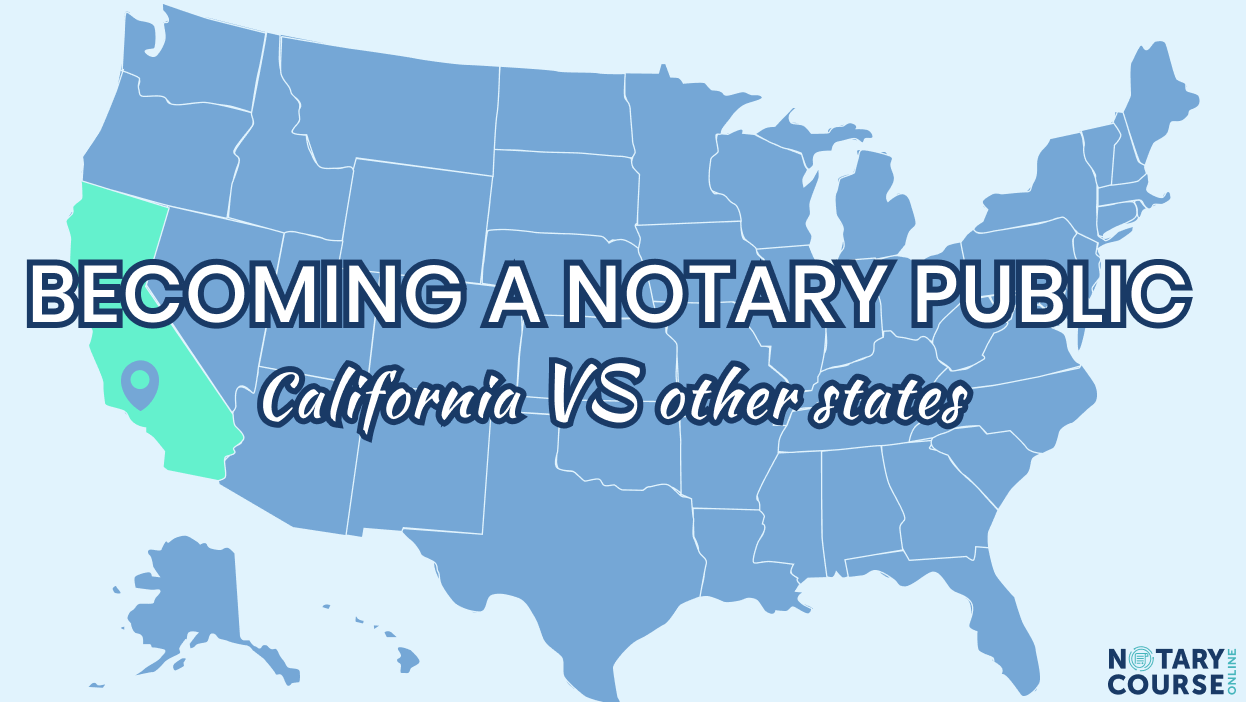California
Blog
Secure Notarization Act: One Step Closer to Nationwide Remote Online Notarization

-
by Notary Course Online
- November 9, 2023
The idea of Securing and Enabling Commerce Using Remote Electronic Notarization was introduced in 2020. In February 2023, a bill to do so was reintroduced to the House for the third time and was signed by 29 cosponsors from both parties. On February 27, 2023, the House passed H.R. 1059, the Securing and Enabling Commerce Using Remote and Electronic (SECURE) Notarization Act of 2023. To become a law, it still has to pass in the Senate and be signed by the President.
How will the SECURE Notarization Act of 2023 Affect US Notaries?
After the act becomes federal law, the entire notarization process in the United States will change. First, the new law will benefit homeowners and property buyers nationwide by enabling fast and secure remote online notarization technology. Notaries public from across the country will be able to perform Remote Online Notarization (RON) of documents. This also means notarization will be possible for signers located outside the United States.
Remote Online Notarization vs Traditional Notarization
Modern technological tools for notarization have confused many people, including notaries. Various types of notarizations are available, including remote online notarization (RON), in-person electronic notarization (IPEN), and remote ink-signed notarizations (RIN). Each of these is different from traditional pen-and-paper notarizations.
What is the difference between IPEN and RON?
IPEN, or in-person electronic notarization, is precisely what it says. It is an in-person notarization act, so the notary and signer should be present at the same time in the exact same physical location during the notarization process. The identifying procedure is performed traditionally. However, notaries use an electronic seal and signature to notarize the document, which is presented in a digital format.
For the IPEN procedure, notaries must attach or logically connect their electronic signature and all other necessary information to the electronic record to build a proof of any change after notarization is performed.
RON, or remote online notarization, allows notaries to perform notarization acts over the internet using audio-visual technology. The signer and notary are not obligated to be at the same physical location. The process of signer identification requires the same documents as the in-person notarization act, but depending on legislation and the service being used, the process can include a system that establishes the identity of the signer before interaction with the notary.
For the RON process, the signer should appear before the notary at the time of the notarization process via communication technology.
The notary must identify a signer throug
- At least 2 distinct processes or services to verify the identity of the remotely located signer.
- The oath or affirmation of a credible witness who is either physically present before the notary using communication technology.
- The notary’s knowledge.
NOTE!
Notaries must create and retain the record of the notarization process and confirm the signature or statement of the signer was made on the notarized document!
Notaries must create and retain the record of the notarization process and confirm the signature or statement of the signer was made on the notarized document!
Notaries must perform notarization acts and signer identification strictly following the declared procedure. Otherwise, the notary public can be subject to disciplinary notary actions.
Stay tuned to get the latest notary news, and answers to your questions, such as family member notarization.






 Congratulations!
Congratulations!